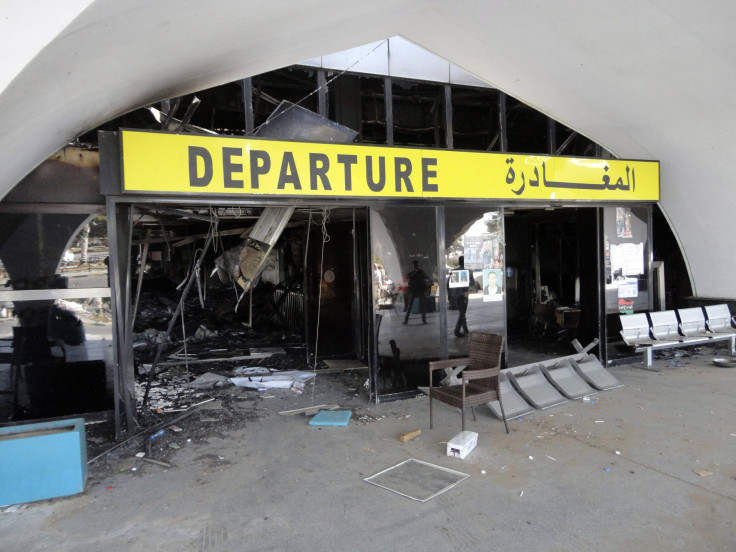Libya Crisis: Egypt And United Arab Emirates Hit Libya With Airstrikes

Egypt and the United Arab Emirates are responsible for a series of airstrikes that hit Islamist forces in Libya last week, according to the U.S. military. Rear Adm. John Kirby, a Pentagon spokesman, did not give any further explanation as to why the Obama administration believed this when speaking to reporters on Tuesday.
The bombardments took place in Tripoli and reportedly targeted fighters from the city of Misrata who had previously taken over the Tripoli airport. The revelation that these two countries were behind the airstrikes raise two important issues. Two of the closest U.S. allies in the region acted together and the U.S. claimed to have no idea. Furthermore, the airstrikes are likely to escalate an already tense regional conflict between Arab governments and the rise of political Islam since the 2011 Arab Spring.
Libya's fractured political realm is now split in two main fragments: On the one hand there is Libya Dawn, a group of Islamist militias that holds part of the country, and on the other there is Gen. Khalifa Hifter and his offensive against the Islamist groups. Since the ouster of Moammar Gadhafi in 2011, Libya has descended into civil war among the nominal government and heavily armed rebel militias who are getting more and more fragmented as they not only fight the government, but also each other. Now, other regional powers are getting involved.
On Monday, the New York Times reported that Egypt and the UAE were behind the strikes and cited several U.S. officials claiming that they were not aware of it. However, the airstrikes probably were carried out with American-supplied warplanes and training, the International Business Times previously reported.
“Several officials said in recent days that United States diplomats were fuming about the airstrikes, believing the intervention could further inflame the Libyan conflict as the United Nations and Western powers are seeking to broker a peaceful resolution,” according to the Times article.
Egypt’s support of Hifter’s offensive comes as no surprise. The current government crushed Egypt's own Islamist party when military chief Abdel Fattah al-Sisi ousted Muslim Brotherhood-backed President Mohammed Morsi in 2013. Sisi expressed growing concern that Libya's conflict would spill over the border, where there have been several reports of attacks on police checkpoints. The Egyptian government is also concerned about Libyan smugglers who bring in weapons from Libya to the Sinai Peninsula. A notorious jihadi battleground, Sinai borders Gaza and Israel and is home to Ansar Bait al-Maqdis, an al-Qaeda inspired group with ties to the Muslim Brotherhood that has conducted several attacks on Egyptian police and military.
"We have no direct connection to any of the military operations on the ground in Libya," Egyptian Foreign Minister Sameh Shukri told the Associated Press. The UAE has yet to comment.
Last month, at least nine governments issued warnings for their citizens to leave Libya. Some, including the United States, closed their embassies completely. This kind of foreign exodus is a symptom of a country descending into chaos.
© Copyright IBTimes 2024. All rights reserved.












